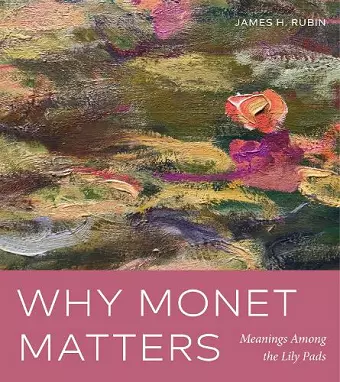Why Monet Matters
Meanings Among the Lily Pads
Format:Paperback
Publisher:Pennsylvania State University Press
Published:11th Jan '22
Should be back in stock very soon
This paperback is available in another edition too:
- Hardback£83.95(9780271086200)

Claude Monet’s Water Lilies are widely recognized as a celebration of nature and a call to visual experience. The skilled brushwork, vivid color, and immersive quality of the paintings suspend thoughts of the outside world and its concerns. And yet, when one realizes that these works were made during a period of social and political turmoil—rapid changes of government, the Dreyfus Affair, and the destruction and devastation of World War I—questions arise about the personal, cultural, and historical contexts within which they were created. In this book, James H. Rubin explores these conditions and shows how Monet’s work—said to be a harbinger of abstraction—appeals not only to the eye but also to something deep in modern consciousness.
The myth of Impressionism is that it was reviled and misunderstood, but by the 1890s Monet was rich by anyone’s standards, and his works were considered French cultural treasures. Monet was featured in a propaganda film in response to German militarism, and he was persuaded by Georges Clemenceau to donate a number of his Water Lilies paintingsto the French nation following the Treaty of Versailles. Taking this into account, Rubin uncovers how the theme of floating lily pads could serve political ends, exposing relationships between Monet’s apparently subject-free art and its material circumstances in the modern world.
Engagingly written, masterfully argued, and featuring more than 150 illustrations, Why Monet Matters is a major study of an artist who had the will and the talent to remain relevant to his time without conceding to its fashions. Scholars, students, and those who appreciate Monet and Impressionism will value and learn from this book.
“This impressive book is a valuable contribution to the scholarship on Monet and later nineteenth- and early twentieth-century French art and culture more broadly. By the end of it, readers will have a far richer understanding of the manifold ways that Monet’s late work intersects with major artistic, political, and philosophical currents of the period.”
—Michelle Foa, author of Georges Seurat: The Art of Vision
ISBN: 9780271091167
Dimensions: 254mm x 229mm x 28mm
Weight: 1814g
392 pages